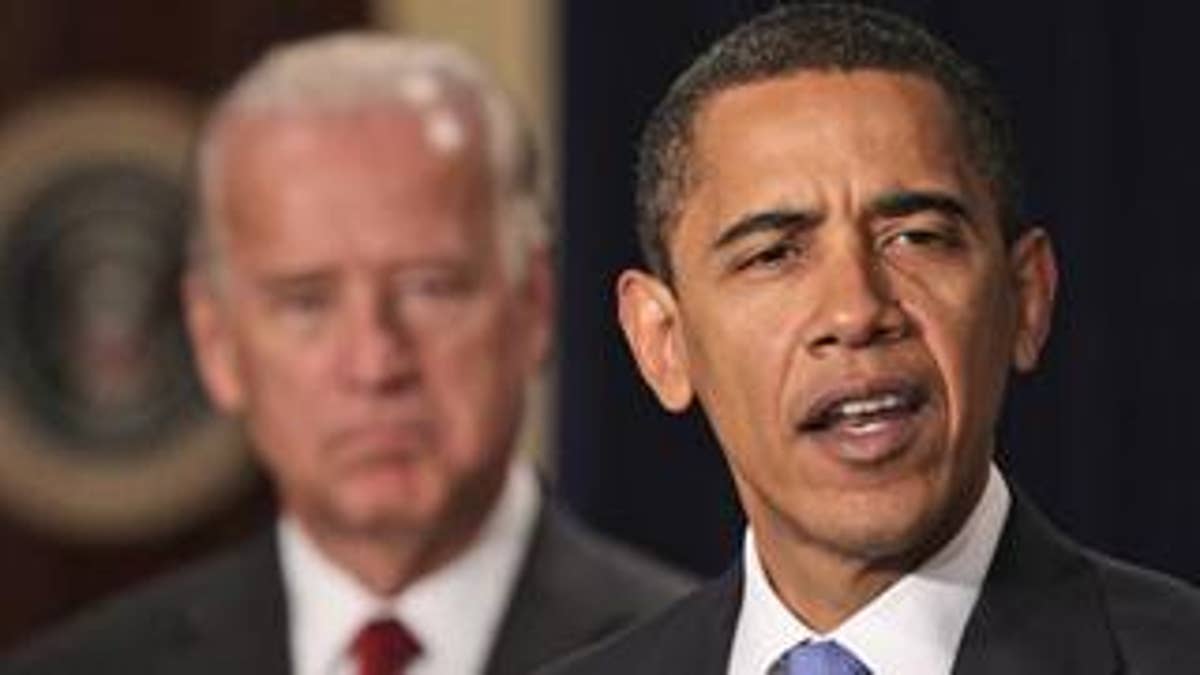
President Obama, during his first 100 days in office, hasn't allowed modesty to stop him from pushing the most ambitious agenda since FDR.
But his plan to reform health care, energy and education could be upended by gaping holes that he has yet to fill in his administration.
Obama is outpacing George W. Bush and Bill Clinton on appointments, but like his predecessors, he is bogged down in a system that has grown increasingly cumbersome over the years. And his task has been made even more difficult by his own tougher-than-ever background checks and ethics rules.
"It's not hampering his ability to set his agenda," New York University professor Paul Light, an expert on the federal government, told FOXNews.com. "But it will hamper the implementation of his agenda. The real challenge for Obama is to get some people in key positions where they have to produce actual results."
As of this week, Obama has had 74 appointments confirmed by the Senate, compared with 30 by George W. Bush at the same point in time.
Ronald Reagan holds the record among modern presidents for most appointments confirmed by the Senate at the end of 100 days: 83, according to the White House Transition Project.
"Obama right now is out in front of all those guys, except Reagan," Terry Sullivan, executive director of the project, told FOXNews.com.
But Obama still has hundreds of positions left to fill. Of the 542 positions that affect policy, the Senate has confirmed 37 percent, according to the project.
What's at stake is much more than bragging rights for how quickly Obama can fill in an organizational chart with undersecretary of this and deputy assistant secretary of that.
These boxes represent the people Obama needs to carry out all sorts of promised initiatives and policy shifts, and to assure that the nation stays safe along the way.
Obama is moving at a good pace compared to Bush and Clinton, Light said. "But he's got a big agenda, more appointments to fill. The activist agenda requires more implementers and executors."
At a recent congressional hearing, for example, Rep. Sue Myrick, R-N.C., lamented that Dennis Blair, Obama's national intelligence director, doesn't have time to manage the extra responsibilities he's been given on economics and climate change.
"The ideal person for that is the principal deputy director of national intelligence," suggested Edward Maguire, the agency's outgoing inspector general.
But that's one of hundreds of seats that remain empty. Similar stories abound all across government.
NASA is awaiting a new administrator as it approaches its deadline to announce when it will retire the space shuttle program. At the Health and Human Services Department, where Kansas Gov. Kathleen Sebelius is still awaiting confirmation by the Senate for the secretary position, 19 of the top 20 slots are being filled by acting career employees, and the 20th is empty.
Obama also has not picked someone to head the Pension Benefit Guaranty Corp., a quasi-government outfit that insures the pensions of 44 million workers and retirees -- critical when bankruptcies are mounting. The corporation is being run by an acting director from the civil service.
Obama himself has bemoaned the "onerous" appointments process, taking note in particular of early trouble filling critical spots at the Treasury Department, where several potential nominees backed out after their names were announced.
"A lot of people who we think are about to serve in the administration and Treasury suddenly say, 'Well, you know what? I don't want to go through some of the scrutiny, embarrassment, in addition to taking huge cuts in pay,'" Obama told CBS's "60 Minutes" last month.
The president added to his hurdles by imposing tougher ethics rules and by increasing scrutiny of nominees' taxes after revelations that Treasury Secretary Timothy Geithner had failed to pay $34,000 in payroll taxes and that former Senate Majority leader Tom Daschle, Obama's first pick for health secretary, owed $140,000 in back income taxes and interest.
But some say that given the scope and magnitude of the positions that remain to be filled, Obama should exercise caution when making appointments.
"They're not really taking that long," Sullivan said. "The fact of the matter is, there's nothing more important than these positions. Pepsico takes half a year to hire people, and they're just making potato chips."
The Associated Press contributed to this report.












































